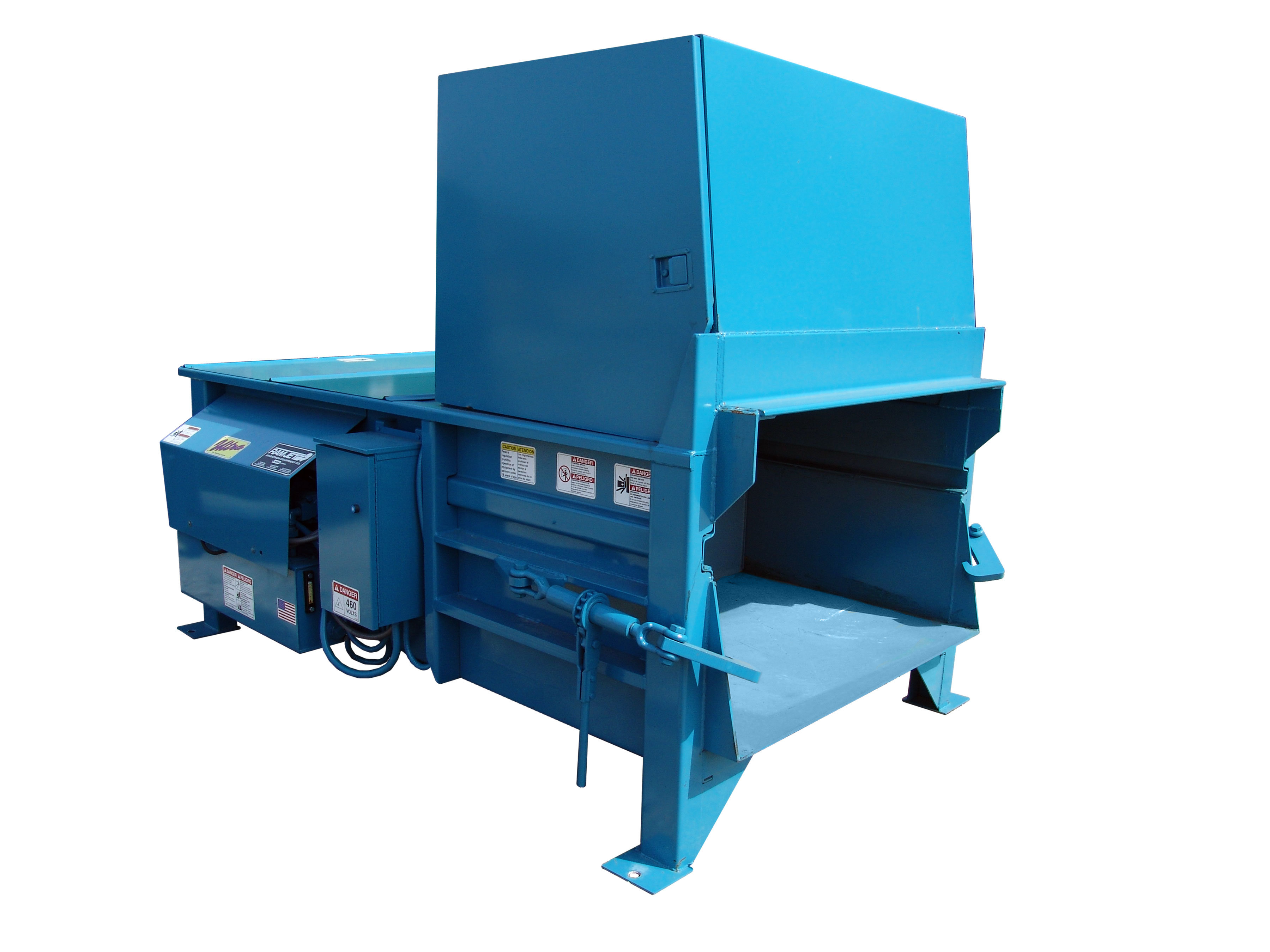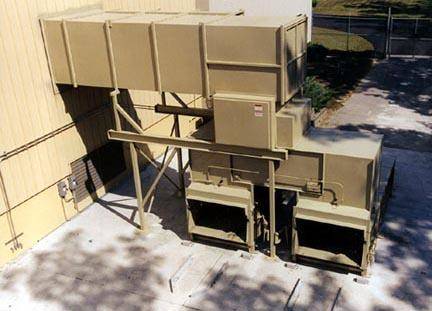Commercial trash compaction equipment and its role in reducing waste volume
Wiki Article
Exactly How Waste Equipment Enhances Efficiency in Garbage Compactor Workflow
Waste Equipment plays a necessary duty in boosting the performance of garbage compactor procedures. By using advanced sensors and automation, these systems enhance compaction cycles and check load abilities efficiently. This integration not just saves power but additionally decreases pickup frequency and linked costs. As organizations progressively adopt these modern technologies, the implications for functional sustainability and monitoring techniques become more clear. What various other advantages might emerge from these improvements in waste Equipment?The Function of Advanced Sensors in Compaction Effectiveness
Advanced sensing units play a necessary function in improving the efficiency of trash compactors. These advanced devices monitor different criteria, including tons ability, wetness levels, and compaction cycles, allowing for real-time modifications. By accurately gauging the amount of waste, sensors enable compactors to maximize their operation, ensuring that energy usage is decreased while making best use of the volume of waste processed.Advanced sensing units contribute to anticipating upkeep by determining prospective concerns prior to they lead to Equipment failing. This positive strategy not only reduces downtime however likewise extends the lifespan of the compactor. In addition, information collected from these sensing units can be evaluated to boost operational methods, resulting in improved waste monitoring techniques. On the whole, the combination of sophisticated sensing units in garbage compactor greatly improves their efficiency and operational performance, translating into cost savings and a much more lasting technique to lose disposal.
Resilience and Design: Materials That Issue
The resilience and layout of garbage compactor pivot greatly on the products made use of in their construction. Top notch steel is commonly the primary choice, offering toughness and resistance to deterioration. This durable product holds up against the enormous stress applied during compaction, making certain long life and integrity. Furthermore, components such as hydraulic systems are normally crafted from corrosion-resistant alloys to avoid deterioration in time, improving functional effectiveness.Layout likewise plays an important role in capability; ergonomic forms and tactical reinforcements can markedly impact efficiency. Manufacturers commonly focus on modular designs, enabling for simpler repair and maintenance. Additionally, advancements in layer innovations, such as powder finishing, improve resistance to environmental factors, consisting of wetness and chemicals. Inevitably, the mindful selection of materials not only improves the structural honesty of garbage disposal yet likewise contributes to their total efficiency and performance in waste management operations.
Automation and Smart Technology in Waste Equipment

Moreover, automated compactors can enhance compaction cycles based upon the volume of waste, maximizing space and enhancing functional performance. Assimilation with mobile applications allows individuals to keep an eye on and manage compactors from remote places, enhancing convenience and responsiveness. By embracing these modern technologies, waste monitoring firms can not only enhance their operational operations but also contribute to even more sustainable practices by decreasing waste and enhancing resource use. Generally, automation and smart modern technology stand for a significant jump forward in the performance of garbage disposal operations.
Data Analytics for Optimizing Waste Monitoring
Utilizing data analytics provides waste management companies an effective tool for boosting and enhancing operations performance. By accumulating and evaluating data from different resources, such as compactor performance metrics and waste generation patterns, companies can gain beneficial understandings. These insights enable them to make educated decisions regarding collection routines, compactor use, and maintenance demands.Additionally, predictive analytics can forecast waste generation patterns, allowing business to designate sources extra effectively and prevent potential overflows or underutilizations of Equipment. Real-time tracking through information analytics also enhances the capacity to react quickly to functional difficulties, reducing downtime and improving service reliability.
Additionally, integrating data analytics with existing waste management systems cultivates a culture of constant enhancement. By tracking and recognizing inadequacies performance with time, business can fine-tune their procedures and adopt finest methods, ultimately leading to an extra reliable and lasting waste monitoring strategy.
Price Savings Through Boosted Operational Performance
By enhancing operations and lessening waste, business can attain substantial cost financial savings in their waste monitoring processes. Boosted functional performance in garbage compactor lowers the frequency of pickups, leading to lower transportation costs. Additionally, progressed waste Equipment enables maximum compaction, making the most of container ability and minimizing the need for added bins.This enhanced efficiency not only decreases waste disposal costs but likewise prolongs the life expectancy of Industrial waste compaction equipment Equipment, reducing maintenance costs. Automated monitoring systems provide real-time data, permitting positive modifications in waste handling, which can in addition improve efficiency and decrease unintended expenses.
Additionally, durable training programs for personnel on Equipment usage can bring about improved functional methods, better driving down costs. Eventually, the combination of reliable waste Equipment cultivates a cost-effective waste administration technique that benefits firms financially while making certain smoother operations.
Environmental Impact: A Lasting Technique to Waste Management

Carrying out reusing campaigns together with compaction processes allows business to draw away materials from land fills, advertising round economy concepts. Services that take on eco-friendly methods not just boost their corporate obligation but likewise charm to significantly eco-conscious customers. By focusing on sustainability in waste administration, companies can accomplish a twin benefit: boosting operational efficiency while actively adding to ecological preservation. This well balanced method positions businesses as leaders in sustainable practices, promoting a healthier planet for future generations.
Regularly Asked Questions
Just How Typically Should Waste Equipment Be Preserved for Optimum Performance?
The frequency of upkeep for waste Equipment generally relies on use and producer suggestions - Industrial waste compaction equipment. Commonly, evaluations must happen quarterly, with complete maintenance each year to guarantee peak efficiency and avoid possible failures or inefficienciesWhat Sorts Of Waste Can Be Processed in Garbage Compactors?
Trash compactors can refine different kinds of waste, consisting of cardboard, paper, plastics, and non-hazardous food waste. Nevertheless, individuals must prevent condensing hazardous materials, steels, and liquids to guarantee efficient and secure procedure.Are There Safety Features in Modern Garbage Compactors?
Modern garbage compactor usually consist of safety attributes such as automated shut-off systems, emergency stop switches, and sensor systems (Industrial waste compaction equipment). These improvements are developed to safeguard customers from possible risks throughout operation, advertising a much safer working settingJust How Does Waste Equipment Effect Labor Demands?
The impact of waste Equipment on labor requirements is considerable; it usually lowers the demand for manual work, boosting and simplifying processes performance. As a result, fewer workers are required, enabling companies to designate sources more effectively.What Is the Ordinary Life Expectancy of a Garbage Compactor?
The ordinary life-span of a trash compactor normally ranges in between 10 to 15 years, relying on use, upkeep, and environmental variables. Regular servicing can expand this lifespan, guaranteeing perfect efficiency and integrity throughout its operational years.By adopting these modern technologies, waste management business can not only improve their operational workflows however likewise add to even more sustainable methods by decreasing waste and optimizing resource use. By enhancing procedures and reducing waste, firms can attain substantial cost financial savings in their waste monitoring procedures. Sustainable waste administration approaches, particularly in trash compactor operations, contribute significantly to minimizing garbage dump waste and lowering carbon impacts. Modern waste Equipment is made to optimize compaction, therefore lowering the quantity of waste needing disposal. Trash compactors can process various types of waste, consisting of cardboard, paper, plastics, and non-hazardous food waste.
Report this wiki page